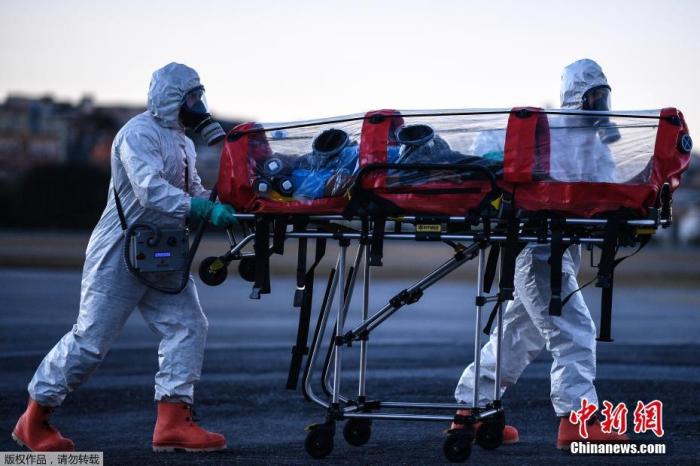China News Agency, Sao Paulo, August 1st (Reporter Mo Chengxiong) The Brazilian Ministry of Health released data at 18:30 local time on the 1st, showing that there were 45,392 new confirmed cases of new coronary pneumonia in Brazil that day, and a total of 2,707,877 confirmed cases; new deaths 1088 cases, a total of 93563 deaths; a total of 1865729 cases cured.
Up to now, Brazil ranks second in the world in terms of cumulative number of confirmed cases and deaths, second only to the United States. The cumulative number of confirmed cases in São Paulo State, the most severely affected state, has exceeded 550,000, reaching 552,318; death cases rose to 23,236. In addition, more than 175,000 cases were diagnosed in Ceara State, and more than 168,000 cases, 167,000 cases, and 156,000 cases were confirmed in Bahia, Rio de Janeiro and Pará states, respectively. The Federal District, where the capital Brasilia is located, has also confirmed more than 100,000 cases.
On July 22, 2020, local time, at the Belo Horizonte Pampulha Airport in Minas Gerais, Brazil, members of the local military wear protective equipment and practice using "bubble stretchers" to transport patients with COVID-19. The device can be used in airplanes and ambulances to transport patients. In addition to isolating patients, it can also filter the air exhaled by patients.
On the 1st, the Sao Paulo Municipal Government closed the largest part of the “square cabin hospital” in Anebi, suspended 871 beds, and kept 310 beds to continue to use until August 31. The reason is that the epidemic situation in the city has stabilized and the city The contract between the government and the supplier has expired and will not be renewed. The hospital began operations on April 11 this year and can accommodate up to 1,800 beds, but the actual use is less than half. The hospital admitted the most patients on May 15, when there were 601 patients.
Rio de Janeiro entered the fifth phase of the economic restart plan that day, allowing sea bathing, but still prohibiting people from stopping on the beach. Rio's municipal guards strengthened their patrols at the seaside that day, and advised and guided violators. In addition, the city allows extending the business hours of bars, restaurants, snack bars and shopping centers, and private schools can also reopen on a "voluntary" basis. (Finish)

